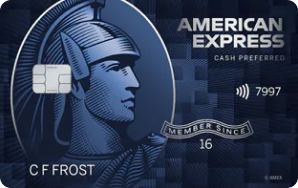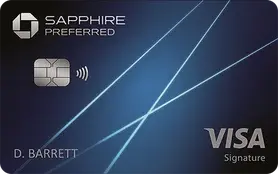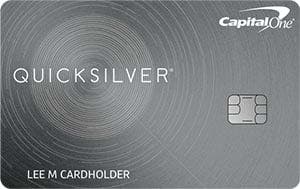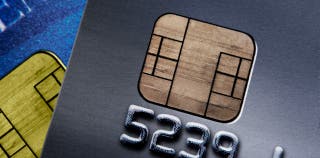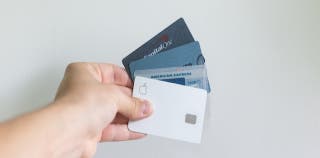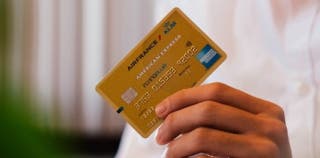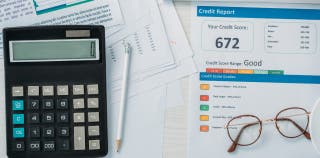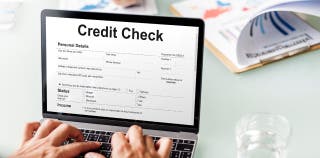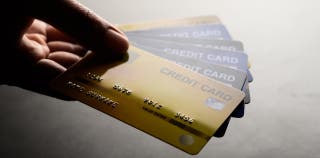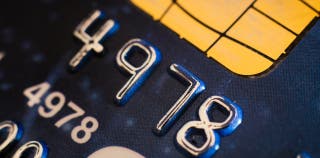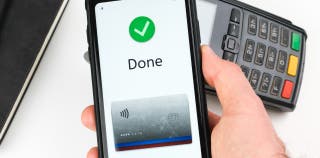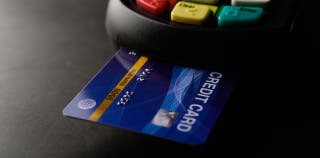Can I pay my mortgage with a credit card?
Can you pay your mortgage with a credit card? Absolutely.
Still, that doesn’t mean paying your mortgage with a credit card is a good idea. While third-party companies will let you charge your mortgage or rent to a credit card and send the company a check on your behalf, they collect convenience fees for doing so. These fees have the potential to wipe away any benefit you get and then some, and you can also get stuck paying off high-interest debt that lasts for years.
Pros and cons of paying your mortgage with a credit card
If you’re hoping to pay your mortgage with a credit card from American Express, Capital One, Chase, or any other issuer, you should have a good reason for doing so.
You should also consider the advantages and disadvantages of paying your mortgage company this way, which are outlined below.
Benefits of paying your mortgage with a credit card
-
You can earn cash-back or rewards points:
Paying your mortgage with plastic can help you earn cash-back or other types of rewards, both on spending and in the form of a generous welcome offer. You could even turn your mortgage payment into a stash of airline miles or hotel loyalty points, or into flexible rewards points with programs like American Express Membership Rewards or Chase Ultimate Rewards.
-
You can improve cash flow:
Paying your housing payment with a credit card can help you stay on track with your budget when you’re tight on cash. Your credit card will let you pay off your mortgage over several months if you prefer, which can give you breathing room when you need it the most.
-
You can avoid a late payment:
If you don’t have enough money to make your housing payment, a credit card can work as a short-term loan. You’ll avoid a late payment and a late fee, and you could even keep your home from foreclosure.
-
You can simplify your payments:
You can make it easier to manage different bills by paying your mortgage with a credit card.
Cons of paying your mortgage with a credit card
-
You may end up with high-interest credit card debt:
According to recent Federal Reserve data, the average interest rate (on credit cards that assessed interest) worked out to 20.92% as of February, 2023 – up around 13% since August of the previous year. This rate will easily wipe out the value of any rewards you earn if you carry a balance from month-to-month.
-
You’ll pay a transaction fee:
Every strategy that lets you pay your mortgage with a credit card requires some sort of processing fee, and these fees make it harder to benefit from any rewards you earn.
-
Your credit score could take a hit:
If paying your mortgage with a credit card causes your credit utilization ratio to surge, your credit score could drop considerably as a result.
-
Lender restrictions:
Many mortgage lenders do not accept credit card payments. You have to rely on third-party services which have their own limitations.
-
You may up end in financial mismanagement:
Depending on credit cards for significant costs like mortgages without a solid plan, can result in a poor financial situation and increased debt.
When does it make sense to charge your mortgage to a credit card?
There are a few scenarios where it can make sense, but only if the benefit outweighs the drawbacks.
Earning credit card rewards
Most people want to pay their mortgage with a credit card to rack up rewards, and this strategy can definitely make sense. The key is making sure the rewards earned have more value than any transaction fee charged upfront. If you can earn 3% back in rewards but you only pay 2% in fees to charge your mortgage to your favorite card, for example, the effort can be worth it.
Earning a sign-up bonus
The potential to earn a welcome bonus is another reason consumers get interested in charging their mortgage. This strategy can make sense regardless of the transaction fees charged. If you can earn a welcome bonus worth $500, $750, or even $1,000 in exchange for paying a nominal fee to charge your mortgage to a new rewards card, doing so can be well worth the time and trouble.
Avoiding a late payment
If you don’t have the cash in your bank account to pay your mortgage directly, credit card companies can fill in the gaps. By charging your mortgage to your card, you can create your own grace period while avoiding a late payment and the subsequent late fee.
Avoiding foreclosure
Maybe you’ve been late on housing payments already, and you desperately need to keep your home out of foreclosure. While charging your monthly mortgage payment to a credit card means you’ll have yet another bill to worry about, this strategy can help you keep a roof over your head in the short term.
What are the downsides of using a credit card to pay your mortgage?
While charging your mortgage payment can have its benefits, there are some serious disadvantages to keep in mind.
Fees vs. rewards
While most people hope to charge their mortgage payment to a credit card so they can rack up rewards, you should know this is rarely a winning strategy. You’ll pay a transaction fee to charge your mortgage payment to your card, and this fee is almost always more than the value of the rewards you earn.
Credit card interest and long-term debt
If you carry a credit card balance from one month to the next, you’ll fork over a ton of money in interest over the long term. Due to the exorbitant interest rates cards can charge, paying off your debt could even take months or even years.
Credit score impact
If charging your mortgage to a card causes your credit utilization ratio to surge, or it gets you close to your credit limit, you’ll likely see your credit score plummet. After all, the amount you owe on your credit cards (also called credit utilization) is the second most important factor that makes up your credit score.
*Pro Tip: Pay your credit card bill before your statement is due. If you want to minimize potential impacts on your credit score, consider charging your mortgage to your card and paying off your balance right away. This strategy can prevent the updated balance from being reported to the credit bureaus, which typically happens when your statement closes each month.*
How to pay your mortgage with a credit card
If you have carefully considered the pros and cons of paying your mortgage with plastic and still think it’s a good idea, you can implement the following tactics.
Use a third-party service
Several third-party services let you pay your rent or mortgage payment with a credit card, although the majority of these companies focus on rent payments only. For example, consumers can use services like RadPad, RentTrack, and RentMoola to charge rent payments to their credit cards each month.
When it comes to paying mortgages with a credit card, Plastiq.com is the major player in this space. This company lets you charge your mortgage to Discover and Mastercard products only, so you can’t use American Express or Visa.
Is there a fee for Plastiq?
Unfortunately, Plastiq.com charges a 2.85% transaction fee for every purchase you make through the platform, which is added to the total payment amount being charged. If you charge a $2,000 mortgage payment to your Mastercard, for example, Plastiq.com will send your lender a $2,000 check, but you’ll wind up with a credit card bill of $2,057.
How can I reduce my Plastiq fees?
There’s only one way to avoid fees charged by Plastiq.com, and that’s by racking up Fee-Free Dollars or FFDs. When you have FFDs, you can use them to avoid fees on credit card payments of the same amount. If you rack up $1,000 in FFDs, for example, you can charge a $1,000 mortgage payment to your credit card without a transaction fee. However, any payment amount over $1,000 would be charged the standard fee of 2.85%.
To begin racking up FFDs, all you have to do is create an account with Plastiq.com and generate a referral code. From there, you’ll get $1,000 FFDs and the person you refer gets $2,500 FFDs when they make a payment totaling $2,500 or more through the platform within 30 days of signing up.
Take out a cash advance
You can also use your credit card for a cash advance, which involves taking cash out of an ATM. From there, you can deposit the money you access into your bank account and use it to pay your mortgage.
Just remember that cash advances are extremely expensive, both in the short term and over the long run. You’ll pay an upfront transaction fee for each cash advance you take out, which is usually 5% of the cash advance amount. Cash advances also come with a higher APR and no grace period. This means you’ll rack up interest on your cash advance from day one, even if you plan to pay your credit card balance in full.
Purchase gift cards
You can also use your credit card to purchase gift cards, which you’ll use to purchase money orders to send to your mortgage lender. That said, not all merchants let you pay for money orders with a gift card, so you’ll want to try this transaction with smaller gift card amounts first.
As a side note, you may have to buy a pin-enabled gift card or a prepaid card in order to buy gift cards from your merchant of choice. You may also find that Visa gift cards work better than other options, particularly if you’re buying money orders at a grocery store.
Can’t afford your mortgage? Consider these alternatives
If you are trying to figure out how to pay your mortgage because you ultimately cannot afford it, you should consider the following alternatives:
If you’re a borrower who is struggling to keep your mortgage payments up-to-date, you should reach out to your mortgage servicer to see whether they offer special programs that can help. Some mortgage lenders offer mortgage assistance solutions, such as a Deed in Lieu of Foreclosure, loan modification, or mortgage refinancing.
Consider downsizing
You can also consider selling your home and purchasing something smaller and more affordable. Moving to an area with a lower cost of living can also help you secure a mortgage payment that makes more sense for your budget and goals.
Use your mortgage protection insurance
If you have Mortgage Protection Insurance, you can use this coverage to get temporary relief from mortgage payments. While these policies vary widely, some can cover your mortgage payment in specific circumstances, including job loss or disability.
Get a roommate
You can also consider getting a roommate that can pay part of your mortgage and utility bills. This strategy will work best if you have some extra space in your home that’s not in use, such as a spare bedroom or a basement apartment.
Get free debt advice
Credit counselors can also help you figure out your next best steps when you’re struggling to pay your mortgage and other bills. Most accredited credit counseling agencies are non-profit, and the majority offer free consultations and debt advice.
Consider a cash-out refinance
If you’re struggling to make mortgage payments but you have considerable equity in your home, you can also consider a cash-out refinance. This strategy will help you access the cash value that’s locked up in your home, which you can use to make mortgage payments going forward. However, you should note that your mortgage payment has the potential to increase any time you add to your loan amount.



